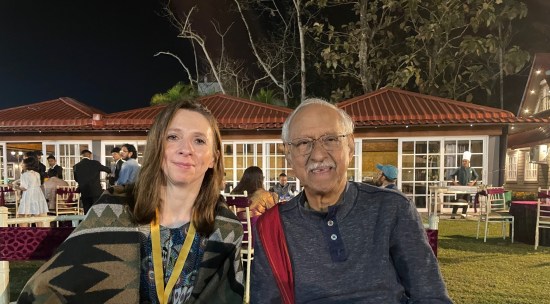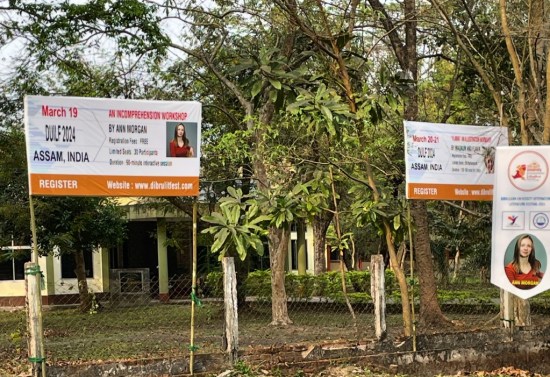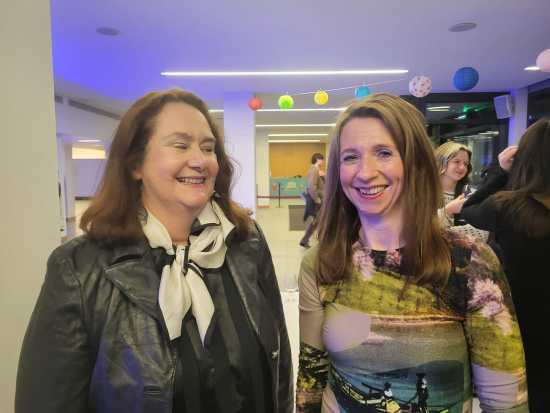Last week I had a special experience. I was invited to the north eastern Indian state of Assam to participate in the inaugural Dibrugarh University International Literature Festival. It was my second visit to Assam. Five years ago, I was part of the Brahmaputra Literary Festival, a wonderful experience that I recorded on this blog.
DUILF was organised by the Foundation for Culture, Arts & Literature (FOCAL) and curator and chief coordinator Rahul Jain, who also masterminded the Brahmaputra festival, so I knew that it would be a special occasion. Even so, I was not prepared for the warmth and celebration that met the writers from 17 countries who flew in to take part.
Literature festivals can often be quite clinical and hierarchical, with the red carpet rolled out for the big-name writers and relatively little welcome extended to those with less following. In Dibrugarh, however, everyone was an honoured guest. Our faces were featured on banners lining the roads around the university campus, and we were all greeted and entertained as celebrities.
And there were some real celebrities in the mix. A number of India’s most revered contemporary writers were on the bill, among them the legendary Tamil author Ambai. She spoke incredibly powerfully about her experience as a feminist writer over a career spanning more than 60 years. I have since started reading her short stories and have been blown away.
I was also delighted to chair a session with prolific Malayalam author Benyamin, whose Goat Days (translated by Joseph Koyippally) is set to be a major film, and to speak to Goan author Damodar Mauzo, who writes in Konkani, the only language to appear in five different scripts. A winner of countless awards, including the Jnanpith Award, India’s highest literary honour, he is an inspiration. It was humbling to hear about his process – which draws on the fine observation of small details, many of them gleaned while minding his shop – and thought-provoking to listen to him talk about his experience of finding his stories celebrated in English decades after he wrote them.

From further afield, some of the other key figures included Ukrainian writers Irena Karp and Halyna Kruk, who heard she had been longlisted for the Griffin Poetry Prize during the festival; Caribbean region Commonwealth Short Story Prize 2016 winner Lance Dowrich; and Australian writer Kate Mildenhall, with whom I had the luxury of a staged conversation about our writing journeys.
This session also delivered one of my personal highlights. During the question and answer section, a young man stood up and said that he had a confession to make: he had found The World Between Two Covers (the US edition of my Reading the World book) in a library in 2015 and been so gripped by it that he couldn’t bear to return it. He had it still. For me it was a moment of real joy – and a reminder of the extraordinary power of writing to link us across boundaries of all kinds.
I also had the privilege of taking my Incomprehension Workshop to the festival. I was a little apprehensive as to how it would be received: although I have run versions of it with readers of many different backgrounds, this would be my first experience of trying it with people raised exclusively in a rather different education system.
My fears proved unfounded. The audience, consisting largely of university students, proved to be the most imaginative and receptive I have ever worked with. Their responses and reactions were incredibly creative and warm. They taught me anew the value of this work, enthusing me for the final stages of drafting my next book on reading, drawing on my work with incomprehension over the last few years, details of which I’ll be sharing here soon.
As in Guwahati, at the Brahmaputra festival, my conversations with curator Rahul Jain proved inspiring too. I was particularly struck by something he told me on the last day, when a few of us were sitting in the hotel lobby, waiting to leave for the airport. The wonderful way the festival celebrated writers came up for discussion, prompting Jain to share his perspective. It was simple, he said. In Buddhism there is the concept of dependent origination: a thing can only be what it is meant to be by virtue of other things. He cannot be a husband without his wife; he cannot be a father without his children. The same is true of his role as a festival coordinator: he cannot be this without writers. Therefore it is his duty to honour them and readers because they make him who he is.
Source: A year of reading the world



